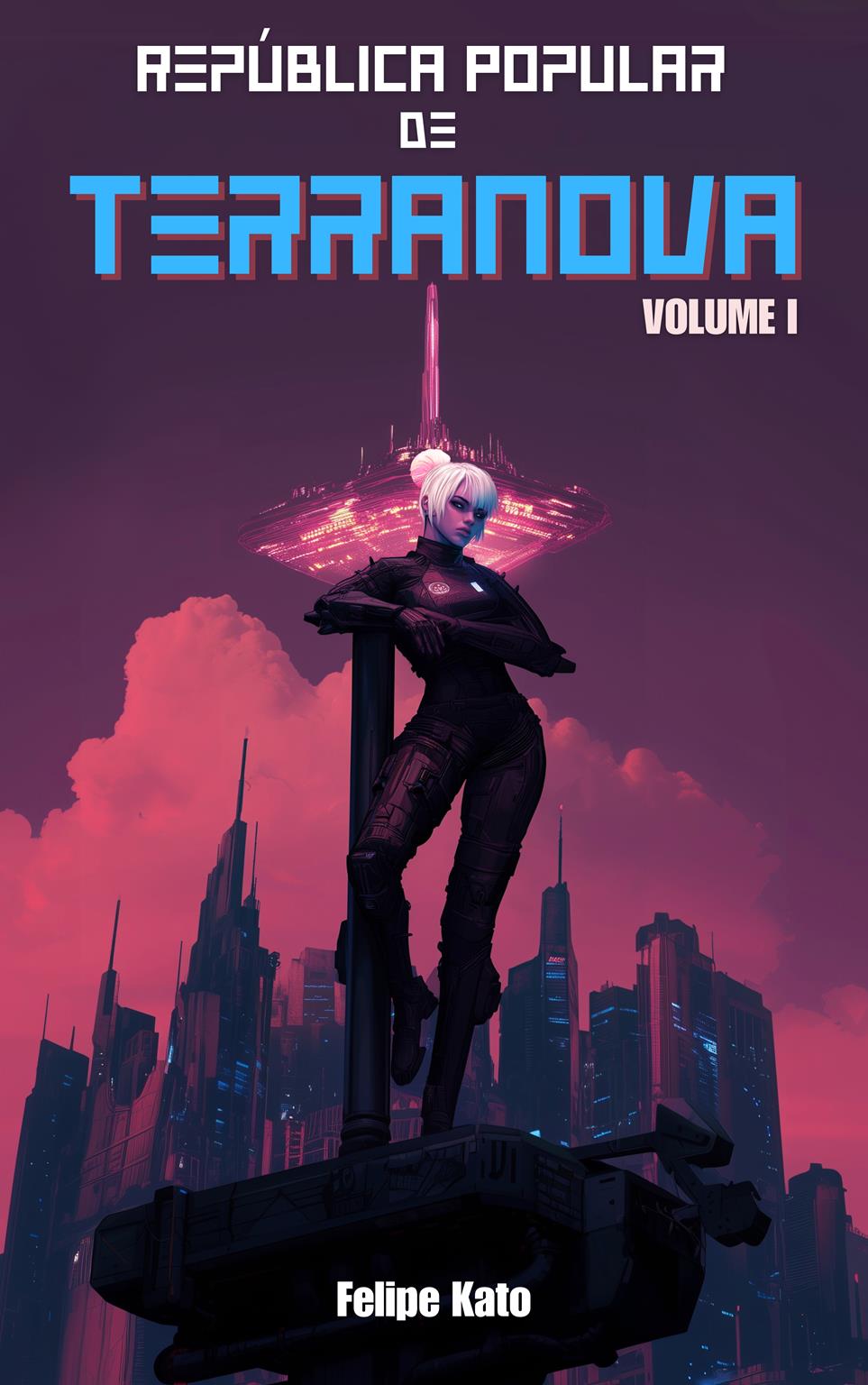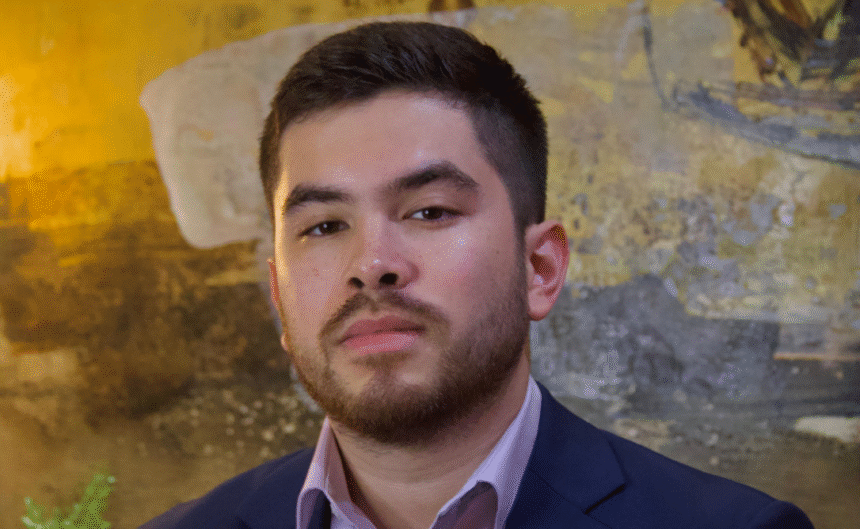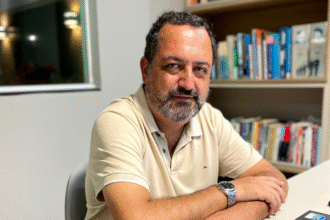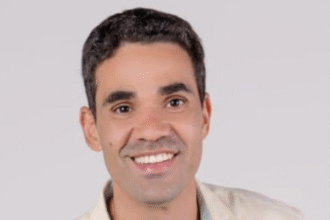In The People’s Republic of Terranova, lawyer and writer Felipe Kato transports the reader to the year 3084, in a futuristic macro-country boasting technological advances such as cyborgs, nanobots, and interdimensional portals, but concealing a false utopia marked by political manipulation, corruption, and state oppression. The plot follows Thomas K., an independent journalist wrongly accused of a billion-dollar debt, and his daughter Susana, who joins a revolutionary movement, as they confront the authoritarian mechanisms of a government that controls the population even through taxes.
Felipe, your book is set in 3084, in a technologically advanced society rife with manipulation and authoritarianism. How did you come up with the idea of blending futuristic technology with social critiques so close to today’s reality?
To be quite honest, the idea for the book as a whole came to me during a very idle moment in my life. At the time, I wasn’t working, just studying. One day, I went to see the movie Gladiator 2 at the cinema, and the inspiration for the book, culminating in what I was studying about tax law in college and the events in the news, came to me suddenly. I always felt like humanity was creating a symbiosis with technology that it would regret after a while.
Thomas K., your protagonist, is a journalist who confronts government injustices. To what extent did you draw on your own experience as a lawyer to develop this character?
Thomas experiences a number of situations that leave him extremely frustrated. Some of them, inspired by my own experience as a lawyer, include: going to the office, waiting for hours, and getting nothing resolved; being sent to another office and sent back without any clarification; and seeing his taxes increase in value due to administrative acts (decrees or ordinances) that change overnight without any transparency. It’s a feeling very similar to what any Franz Kafka character goes through.
Susana, Thomas’s daughter, undergoes extreme transformations when she becomes a cyborg. What did you want to convey about identity and humanity through this journey?
Transforming the character into a cyborg was the way I found to convey feelings of remorse and anxiety. It was very easy for the character to criticize the system from afar, being in her comfort zone and benefiting from it. However, she chooses to join the Movement, a decision driven entirely by hatred and revenge. It took everything from her. Being part machine represents that part of her essence is apathetic, alienated by negative feelings she can’t escape.
The work alternates between points of view and different parallel stories. How does this narrative structure help deepen the social critique you want to present?
My main goal was to make the story dynamic and demonstrate the differences in how the Republic, the totalitarian government, affected the lives of ordinary people. The public policies established by the Party, which were supposedly for the welfare of society, worsened the lives of citizens. For Thomas, his freedom of expression was completely curtailed. Soren was sold by his parents to pay a tax debt. Each of them had their decisions influenced by the state’s near-infinite control in the plot.

You mention that taxes and control systems inspired part of the plot. How do you balance humor and irony with serious critiques of these mechanisms of power?
The best way to create humor is to be subtle. Humor isn’t just about comedy, about making people laugh, but also about making them think. Exaggeration is a vital tool in this regard. Gradually introducing this into the plot was the way I found to balance the humor with the story without making it too heavy for the reader. In short, introducing elements like the Church of Tribute to the Lord, a religion focused on the deification of tribute, was the comic exaggeration that combined political messianism and religiosity as a form of social alienation.
The book’s cyberpunk aesthetic and elements of geek culture are prominent. How did these choices reinforce the narrative’s political and social message?
Cyberpunk elements serve to reinforce the message of the danger of using technology for totalitarian purposes. Microchips on the wrist, which provide access to a kind of holographic display, are an instrument of state control and surveillance. The state monopoly on the manufacture of cyborgs also reinforces the narrative of the “objectification” of human beings and their work. Finally, androids, or artificial humans, are another allegory that represents how the state uses pleasure to keep the working class alienated.
Terranova is presented as a technological utopia, but one that conceals corruption and manipulation. What do you think readers can reflect on about our own societies by following this story?
Readers might reflect that Terranova’s plot is merely a distorted mirror of the real world. Whenever asked, I tell people the book’s synopsis with the simple phrase, “It’s about a government that controls people through taxes.” Most of the time, I’m met with the question, “So, it’s like Brazil?” We laugh, and I say, “Exactly!” That’s precisely the role of fiction: to induce readers to see the world differently or to perceive the injustices they experience in an instructive and humorous way.
In your words, the book deals with inequality, control, and rebellion. What impact do you hope your work will have on the public in terms of reflection on freedom, ethics, and justice?
The concept of freedom is repeatedly addressed in the book, even with a more radical anarchist tone. The most important part is to encourage readers to realize that it’s unfair for the average worker to pay more than half their salary in taxes and know that these resources will never be used for anything substantial for the public good. Another impact is to alert people to political messianism, populist rhetoric that promises much but delivers nothing, except social inequality and the undervaluation of human labor.
Follow Felipe Kato on Instagram





